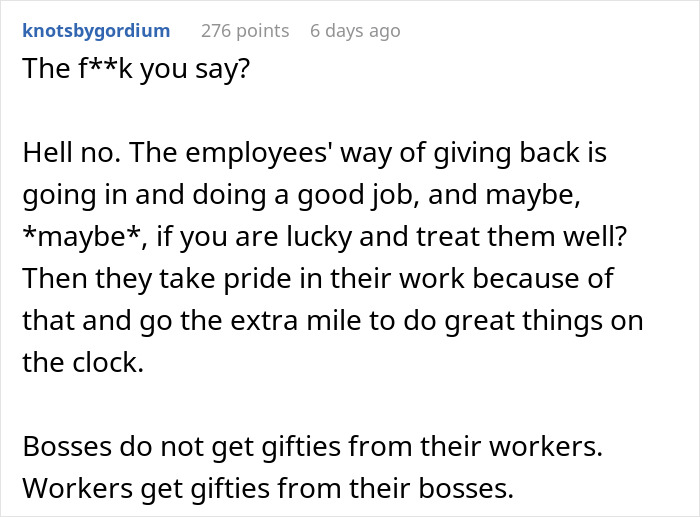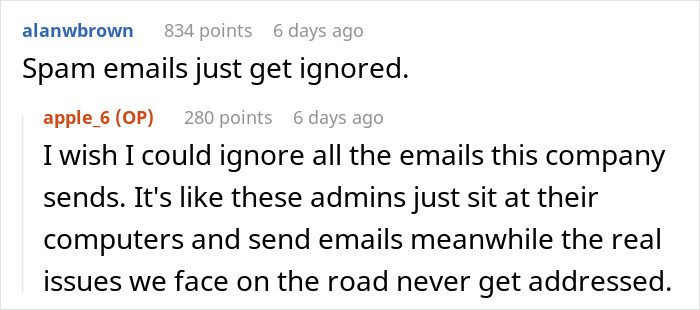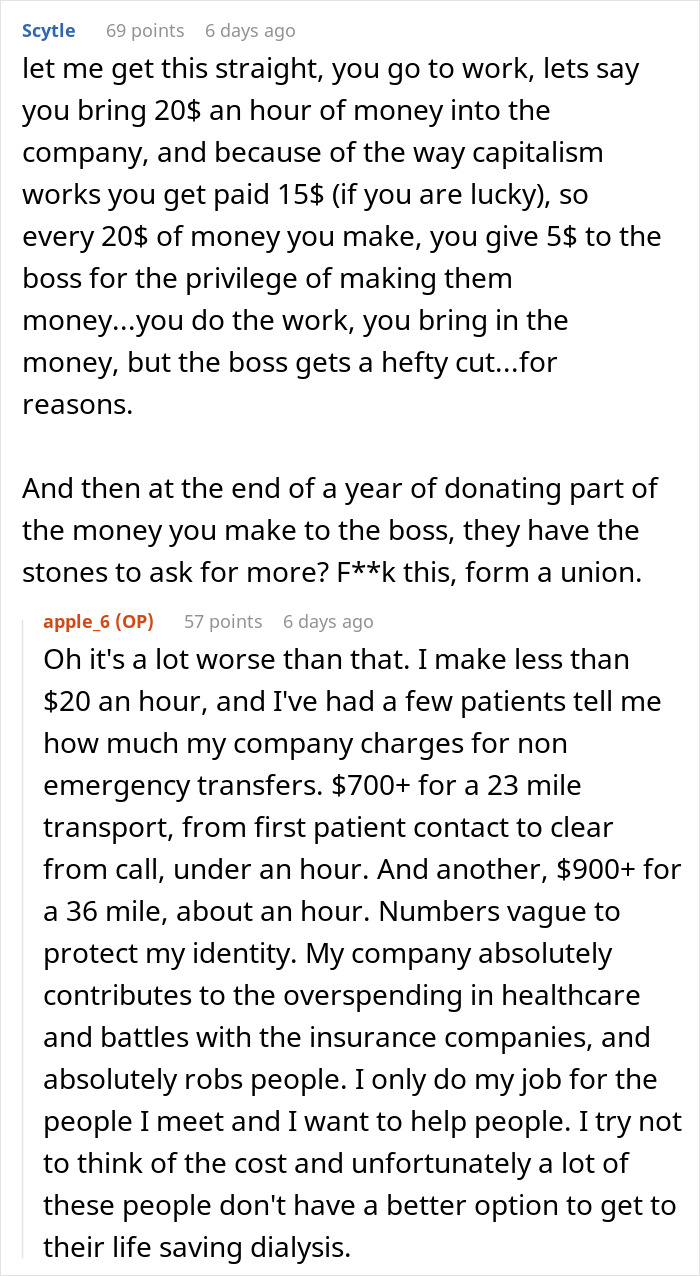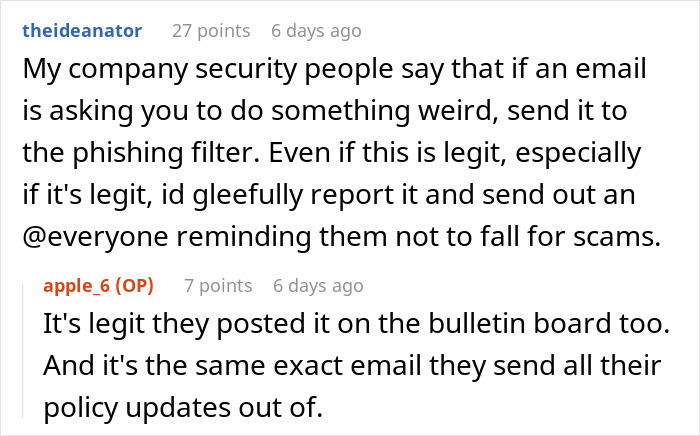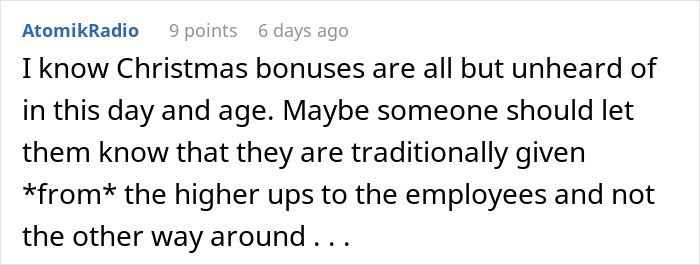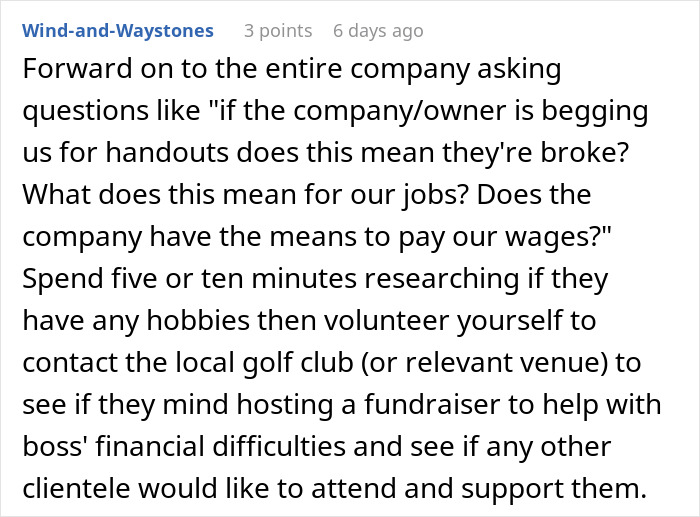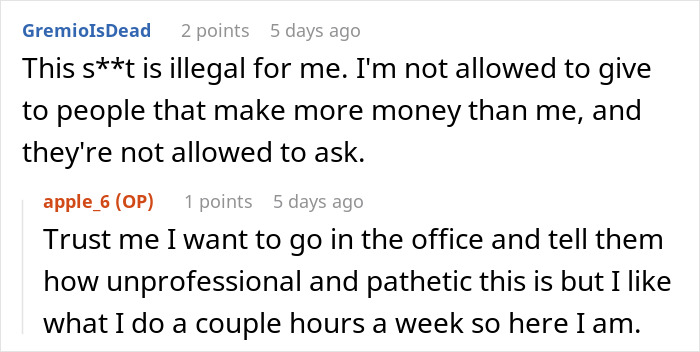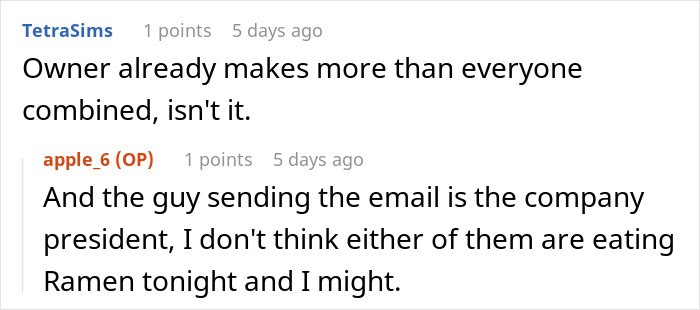If you are lucky, around the holidays or at least at the end of the year, you might get some sort of bonus. At the very least, there might be a party and some free pizza. But the last thing most of us would ever expect is the company asking you for gift money.
A man shared a bizarre and out-of-touch email he got from his company, soliciting donations for the owner’s Christmas present. The request was so bizarre, that some readers thought it was some sort of phishing test. Either way, it sparked a healthy discussion about the norms and standards around corporate culture and entitlement.
Many companies give their workers some sort of bonus at the end of the year

Image credits: Karolina Grabowska / Pexels (not the actual photo)
So one man was shocked to receive a request for donations to buy the CEO a gift


Image credits: apple_6
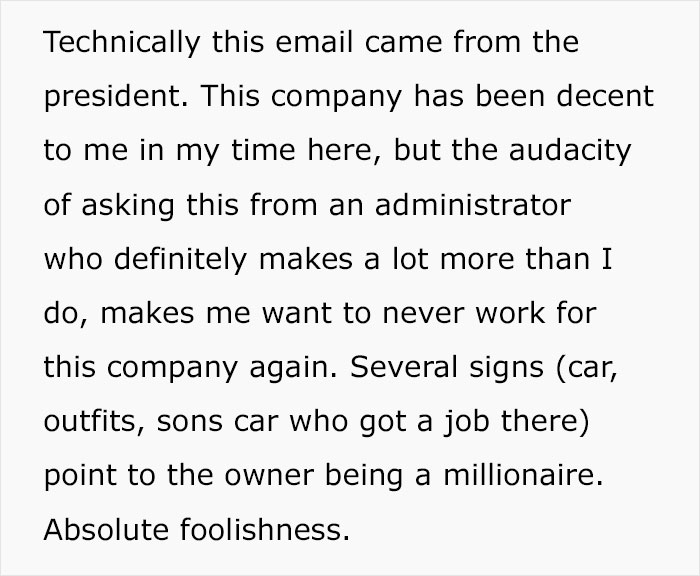
Image credits: apple_6

Image credits: Marc Mueller / Pexels (not the actual photo)
Some companies are constantly crossing lines in the hope of increasing productivity
As bizarre as this email may have seemed, many companies simply do not understand what might be crossing the line when it comes to making requests from workers. After-hours phone calls and emails, randomly canceling PTO and, as seen above, directly asking for money are all in the realm of possibility.
This is why some countries do directly regulate this sort of thing. For example, in France, sometimes seen as a champion of workers’ rights due to their ability to stage protests at a whim, employers are simply not allowed to contact employees past their working hours. While a boss can send text messages or emails, they can not penalize employees for simply ignoring them until their workday actually begins.
Other parts of the EU have a “right to disconnect” which have similar provisions, stopping bosses from piling on demands outside of working hours. However, the fact that these laws even exist is just evidence that many workplaces will do their utmost to squeeze every last drop of productivity from their employees if they can get away with it.

Image credits: Tima Miroshnichenko / Pexels (not the actual photo)
US workers tend to have the worst protections
While we don’t know exactly where OP is writing from, there are some indicators that it’s in the United States. A for-profit ambulance company, for example. Unfortunately, US workers often do get the short end of the stick when it comes to benefits and general work-life balance. For example, Forbes estimates that one-third of the US workforce has no clause for paid time off in their contracts.
On top of that, many US workers report still continuing to do work tasks even while on holiday simply because they feel pressured into it. This is a result of an overbearing manager and also people simply being swamped with work to such a degree that they need to “take a vacation” to even catch up.
The spillover effect is that bosses who “allow” PTO or any other sorts of bonuses might end up feeling like they are the good guys, who “spoil” their employees. If one believes in this sort of delusion, it becomes a bit easier to understand how one can even think about asking a worker to donate to the boss.

Image credits: Andrea Piacquadio / Pexels (not the actual photo)
This could be a result of a deeply held, delusional perspective on employment
Unfortunately, this might be the result of a very misguided opinion that some managers have, that workers are indeed “privileged” to work and shouldn’t ask for anything. Once this concept is taken too far, it becomes clear how a boss can easily forget that, for the most part, people are only at a job for the money. If anything, just by spending their time, they are already “donating” to the boss.
OP mentions the evidence that the boss is quite wealthy, but even if they were a humble, middle-class person who created a successful business, this still would not entitle them to get money from their employees for a gift. After all, their employees already spend their precious time earning them money in the first place.
Some readers even suggest that the email may have been a scam or perhaps a real or test phishing attempt. This is certainly possible, but as the previous examples show, many companies are constantly testing the waters to see just how much they can take from each and every employee.
OP answered some questions and people shared their shock at this request
